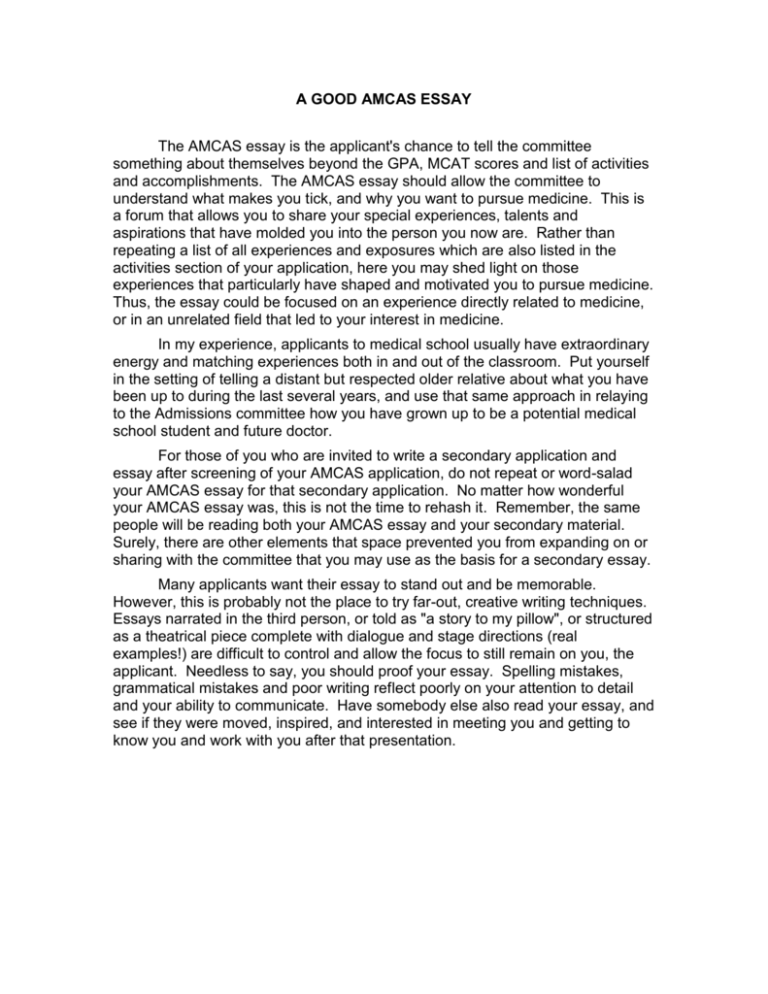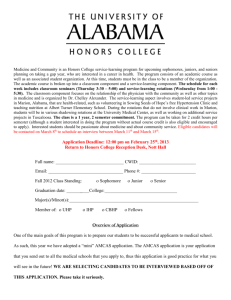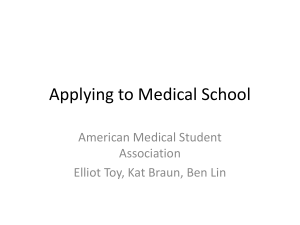A GOOD AMCAS ESSAY
advertisement

A GOOD AMCAS ESSAY The AMCAS essay is the applicant's chance to tell the committee something about themselves beyond the GPA, MCAT scores and list of activities and accomplishments. The AMCAS essay should allow the committee to understand what makes you tick, and why you want to pursue medicine. This is a forum that allows you to share your special experiences, talents and aspirations that have molded you into the person you now are. Rather than repeating a list of all experiences and exposures which are also listed in the activities section of your application, here you may shed light on those experiences that particularly have shaped and motivated you to pursue medicine. Thus, the essay could be focused on an experience directly related to medicine, or in an unrelated field that led to your interest in medicine. In my experience, applicants to medical school usually have extraordinary energy and matching experiences both in and out of the classroom. Put yourself in the setting of telling a distant but respected older relative about what you have been up to during the last several years, and use that same approach in relaying to the Admissions committee how you have grown up to be a potential medical school student and future doctor. For those of you who are invited to write a secondary application and essay after screening of your AMCAS application, do not repeat or word-salad your AMCAS essay for that secondary application. No matter how wonderful your AMCAS essay was, this is not the time to rehash it. Remember, the same people will be reading both your AMCAS essay and your secondary material. Surely, there are other elements that space prevented you from expanding on or sharing with the committee that you may use as the basis for a secondary essay. Many applicants want their essay to stand out and be memorable. However, this is probably not the place to try far-out, creative writing techniques. Essays narrated in the third person, or told as "a story to my pillow", or structured as a theatrical piece complete with dialogue and stage directions (real examples!) are difficult to control and allow the focus to still remain on you, the applicant. Needless to say, you should proof your essay. Spelling mistakes, grammatical mistakes and poor writing reflect poorly on your attention to detail and your ability to communicate. Have somebody else also read your essay, and see if they were moved, inspired, and interested in meeting you and getting to know you and work with you after that presentation.











